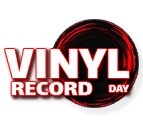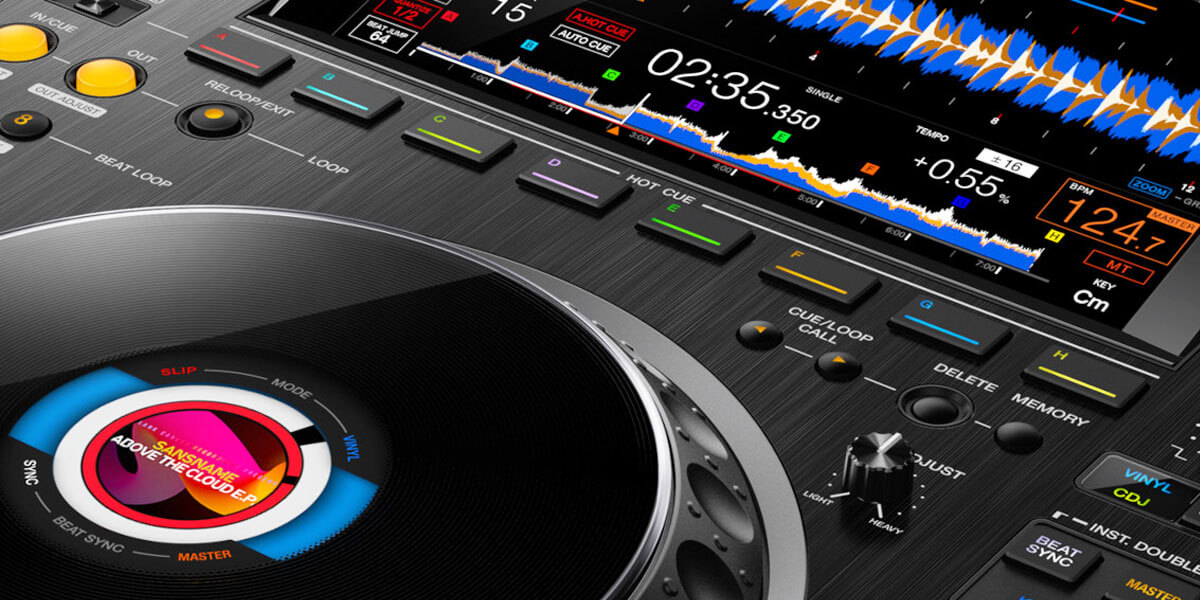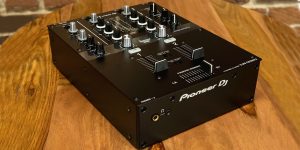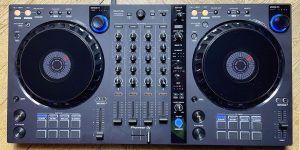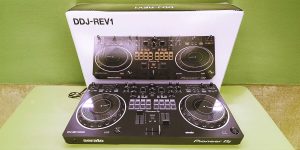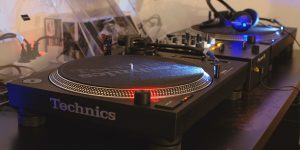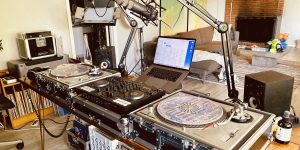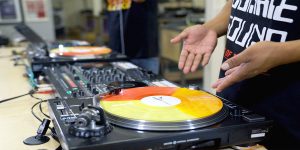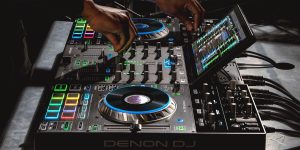Among the great number of DJ equipment available, two key players stand out: CD and DJ controller. Compact Disc Jockeys (CDJ) have been a mainstay in the DJ scene from the 90s till 2005, while controllers have emerged as portable alternatives in recent years. Both options offer unique features and benefits that cater to the diverse needs of DJs.
In this article, I will compare CDJ vs. controller, exploring their key characteristics and functionalities. You’ll have a comprehensive understanding of these cool tools to select the right equipment for your DJing endeavors.
Understanding CDJs
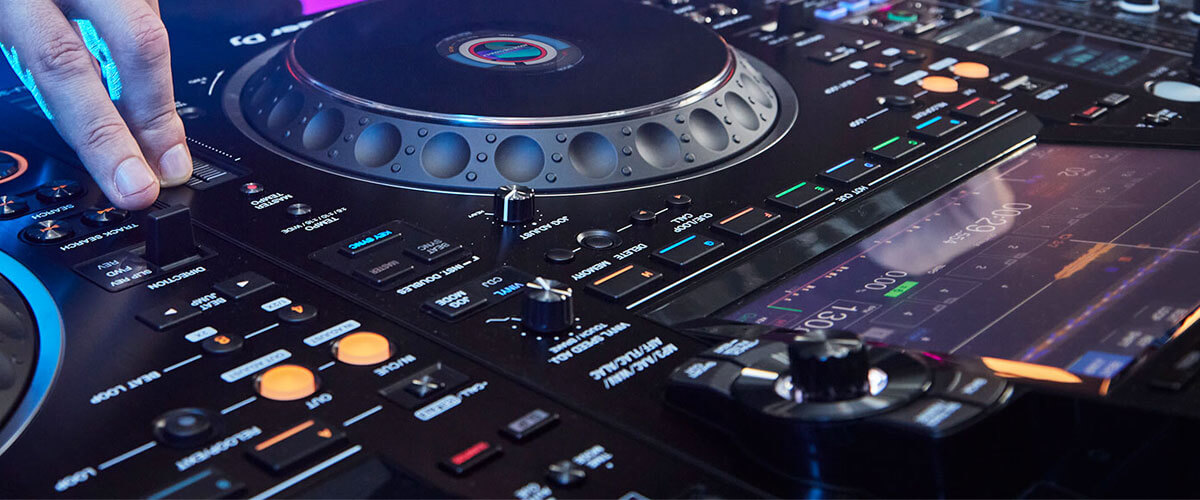
These specialized digital media players were initially made to play audio from CDs. Still, now they also support MP3 and other formats and play music files stored on various external storage devices (USB, etc.). It allows DJs to access a wide range of music and easily switch between tracks during their performances.
Key features and benefits
They typically feature large jog wheels that mimic the feel of vinyl turntables and provide precise control over the playback speed to perform scratching, pitch bending, and cueing techniques.
CDJs offer pitch adjustment controls, enabling you to match the tempo of different tracks and create seamless transitions. They also allow you to set cue points, which serve as markers for specific track sections. Jockeys employ professional-grade digital-to-analog converters (DACs) and audio circuitry.
I’ll briefly underline the following 5 main benefits of CDJs that are worth noticing:
- Familiar interface: Its interface resembles traditional vinyl turntables, making it easier for DJs who are familiar with it.
- Reliable performance: Withstands the rigors of touring and heavy use, so it consistently performs well in various environments.
- Seamless integration: They can connect to external mixers, controllers, and effects units, so you can expand the setup and customize it.
- Enhanced creative possibilities: CDJs offer beat-synced effects and hot cue triggers to looping and remixing capabilities.
- Standard industry equipment: Many clubs, festivals, and events worldwide are equipped with CDJs, so there’s no need to bring your own equipment.
Popular CDJ models
There have been several favored CDJ models released over the years, and these are just a few examples I suggest you get acquainted with:
Pioneer CDJ-2000 Nexus 2 is the industry standard, highly regarded for its advanced features and reliability. It features a large color touchscreen, improved waveform display, extended media format support, and enhanced connectivity options.
Denon DJ SC6000 Prime is a powerful and feature-rich platform. It has dual-layer playback with independent outputs, extensive media format support, real-time track analysis, and time stretching.
Numark NDX500 is a versatile media player that supports multiple media formats, including CDs, USB flash drives, and MIDI control. It offers touch-sensitive jog wheels, pitch control, looping, and seamless integration with popular DJ software.
Reloop RMP-3 Alpha is a robust CDJ with a heavy-duty build. It offers a cost-effective alternative for DJs seeking reliable performance.
Understanding DJ Controllers
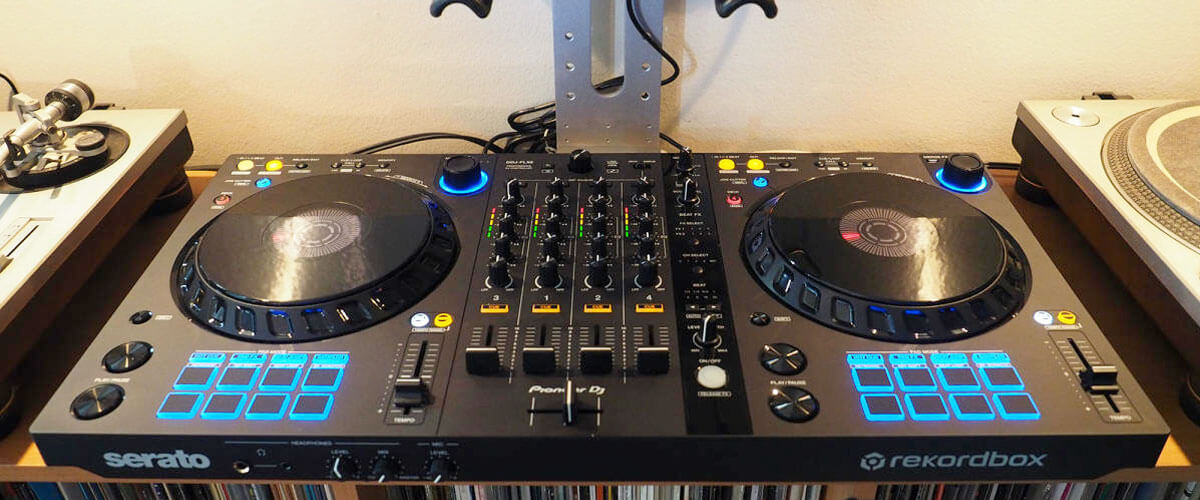
These hardware devices combine a mixer, jog wheels, pads, faders, and other controls to provide DJs with a comprehensive and portable music mixing and performance solution.
Key features and benefits
A built-in audio interface allows DJs to connect directly to speakers or amplifiers. You can work with DJ controllers through the software platforms such as Serato DJ, Rekordbox, Traktor, and Virtual DJ. They often come bundled with the software or offer native compatibility.
Most DJ controllers have jog wheels for scratching, pitch bending, and cueing. Additionally, controllers provide pitch control sliders or knobs for beatmatching and tempo adjustments. They often include performance pads to trigger samples, loops, cue points, and effects, offering tactile control for live remixes. There’s also a mixer section of channels with faders, EQ knobs, and volume controls.
Of course, I cannot pass by the benefits of this device, and here is what I can list for you:
- Portability and convenience: Ideal for small venues and DJs who travel frequently.
- Cost-effectiveness: Offer a comprehensive solution at a more accessible price point, especially for beginners.
- Versatility and flexibility: Provide a wide range of features and controls that cater to different DJing styles and preferences.
- Seamless workflow: Easy navigation through the music library, loading tracks, setting cue points, and manipulating parameters directly from the controller’s interface.
- Expandability and compatibility: Offer additional input and output options for customizing control assignments and integrating third-party hardware.
Popular DJ controller models
In this article, we’re not looking at the best or worst option for such a device (that’s a topic for a separate study), but there are a few that you should definitely pay attention to:
The Pioneer DJ DDJ-1000 is a flagship DJ controller known for its professional features and compatibility with rekordbox DJ software. It is highly regarded for its club-standard layout.
The Traktor Kontrol S4 Mk3 from Native Instruments is a versatile and feature-packed DJ controller designed with Traktor Pro software. It features RGB performance pads, a built-in audio interface, and comprehensive mixing controls.
The Denon DJ MCX8000 is a controller that does not require a laptop to operate. It includes a built-in 4-channel mixer, touch-capacitive jog wheels, and an extensive performance pad section. It supports both USB and Serato DJ media sources.
The Numark Mixtrack Pro FX is an affordable and beginner-friendly DJ controller that provides essential features such as capacitive jog wheels, performance pads, a built-in audio interface, and Serato DJ Lite software. It offers a compact and portable design without compromising functionality.
Comparing CDJs and DJ controllers
I keep reminding you that individual models within each category may have variations in features, so I compare controller vs. CDJ due to relatively common standard characteristics.
| Criteria | CDJs | DJ Controllers |
|---|---|---|
| Cost | Typically more expensive | Generally more affordable |
| Performance and functionality | Advanced features and functionality | Wide range of features, varying by model |
| Compatibility with DJ software | Works with various DJ software | Designed for specific DJ software platforms |
| Portability and setup | Larger and may require additional equipment (e.g., mixer) | Compact and portable, all-in-one solution |
CDJs provide a professional setup with high-quality audio and offer a familiar club-style interface, making them ideal for DJs who prefer a hands-on approach and value reliability.
On the other hand, with DJ controllers, you have extensive creative options, and customizable layouts, which are also more affordable. If you’re looking for flexibility, a wide range of features, and the ability to incorporate software innovations, you may find DJ controllers to be your preferred choice.
Ultimately, you should try out both CDJs and DJ controllers to see which one feels more comfortable and suits your DJing style.
